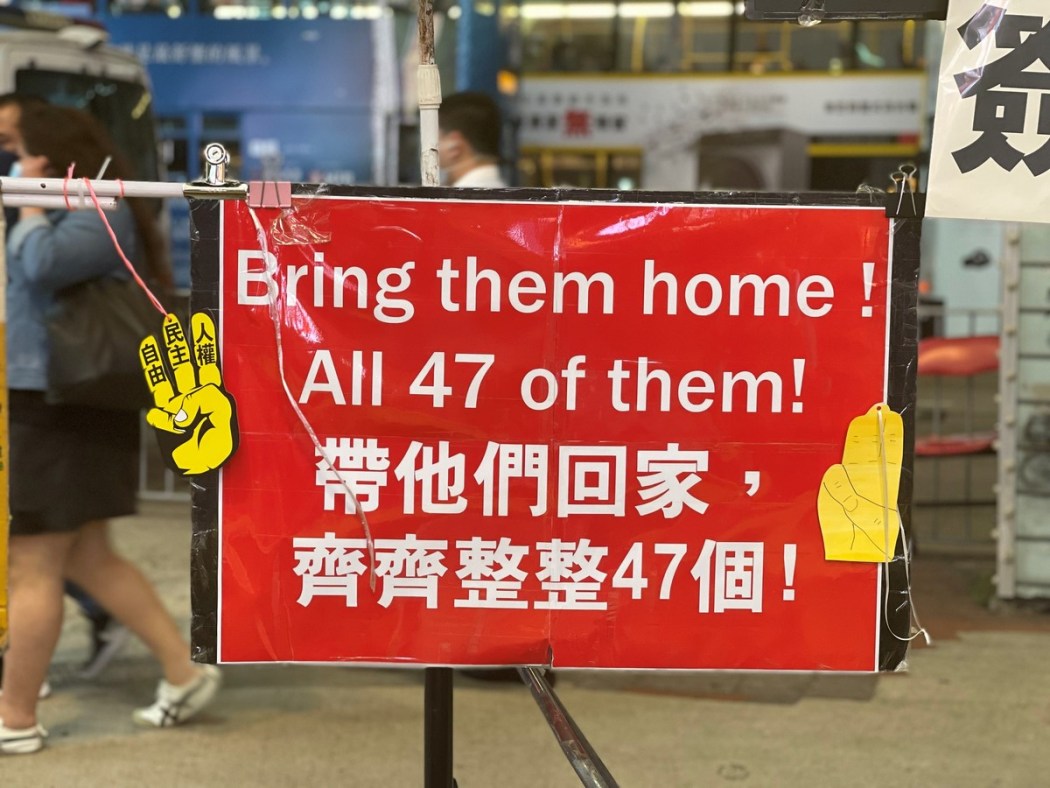Five Hong Kong pro-democracy figures – who are among a group of 47 charged with “subversion” under the national security law – have withdrawn their challenge against a magistrate’s refusal to grant them bail. Meanwhile, the High Court ordered another activist to remain in custody pending trial.
Former lawmaker Lam Cheuk-ting, district councillors Fergus Leung and Henry Wong, ex-Stand News reporter Gwyneth Ho and activist Gordon Ng appeared at West Kowloon Magistrates’ Courts on Friday. They have been detained since March 4 pending trial for “conspiracy to commit subversion” in connection with an unofficial legislative primary election last July.

The five appeared before Chief Magistrate Victor So, who was hand-picked by Chief Executive Carrie Lam to hear national security cases.
Only Lam and Ng reserved their right to apply for another bail review in eight days, while the other three have given up. The next hearing will be on March 25. Lam said he halted his application because he needed more time to prepare his case.
“Excuse me, your honour, I need time to prepare for the review,” Lam told the chief magistrate, according to Stand News.
Ho, Wong and Leung also gave up on their rights to challenge their bail position at magistrate court level every eight days. The trio can still apply for bail at the High Court.

Meanwhile, the High Court on Friday rejected another defendant’s application for bail. Eastern District Council member Andy Chui – who was also dealt with by magistrate So – will remain behind bars.
The chief magistrate originally extended bail to 15 defendants in the case, but only 11 have been released on bail following a challenge from the Department of Justice (DoJ). Those refused bail will remain in custody until the next hearing on May 31.
The prosecution of the 47 democrats is the city’s largest national security case since Beijing imposed a controversial security law on Hong Kong last June 30. The sweeping legislation criminalises secession, subversion, collusion with foreign powers and terrorist acts, with the maximum penalty being life imprisonment.

The dozens of opposition figures stand accused of organising and taking part in a scheme with an aim to achieve legislative majority and “indiscriminately” veto budget bills. The are accused of having the intention to paralyse government operations and ultimately force the chief executive to resign.
These moves are delineated in Article 50 and 52 of the Basic Law as part of the powers of the Legislative Council. The defence has argued that voting down government bills as a “negotiating tactic” is something that “happens in most legislatures in the world.”
Support HKFP | Policies & Ethics | Error/typo? | Contact Us | Newsletter | Transparency & Annual Report | Apps
Help safeguard press freedom & keep HKFP free for all readers by supporting our team
























